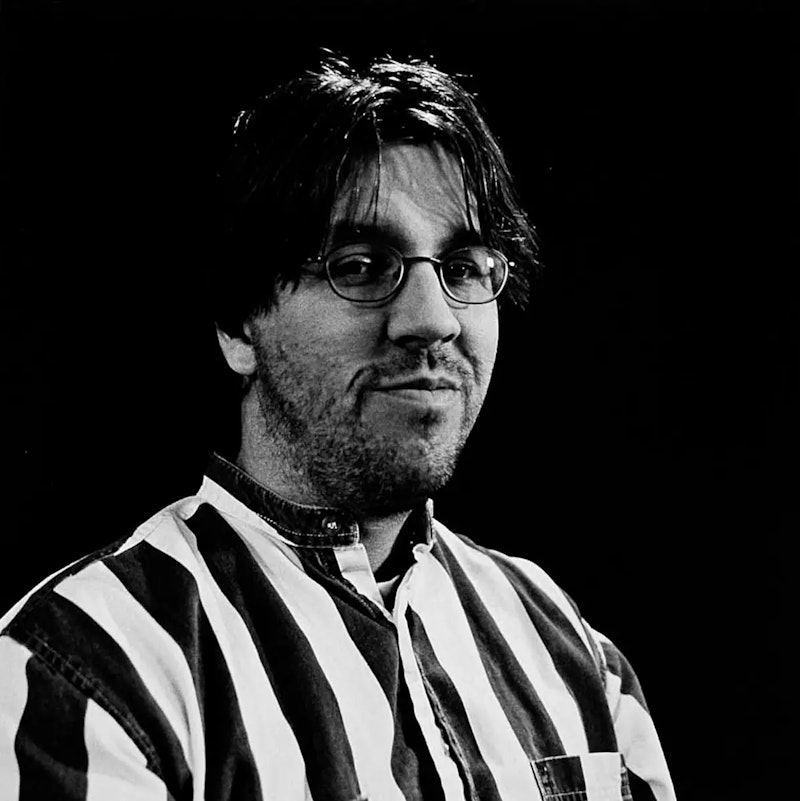David Foster Wallace: It seems to me, as just a layman and an amateur, that the internet is almost the perfect distillation of the American capitalist ethos, a flood of seductive choices.
Ezra Koenig: Sometimes all you can do as an adult—to get back to that vibey taking-it-all-in feeling—is just check out other universes.
Wallace: Well, I don’t know. I don’t do stuff like that.
Koenig: That’s a really interesting take.
Wallace: Um, sure! [laughs] Not really.
•••
Koenig: Suddenly, everything just feels intense and scary when you’re not out there performing too much, and then you become uptight and it’s just a bad feeling.
Wallace: There’s a story about somebody having a heart attack in a parking garage that I think must have been hard to translate because it’s mostly one long sentence.
Koenig: Worst-case scenario, it’s just a curiosity.
Wallace: Because readers are going to think it’s you.
Koenig: That’s just how it’s always been.
•••
Wallace: You know, a very simple answer would have to do with the idea of constant movement but within a rigidly defined set of constraints and also with the idea of two and twoness and things moving back and forth between two sides in such a way that a pattern is created.
Koenig: That stuff is just kind of around, and that’s true in a lot of parts of the country, but especially on the East Coast.
Wallace: It’s not just economic, it’s also aesthetic, and it also has to do with us both trying to produce things and sometimes entertain people but also to be ourselves, a generation who grew up watching television and understanding ourselves as part of an audience.
Koenig: There’s nothing but freedom in the approach, because improvisation is a form of freedom in performing music, but also, there’s such giant, heavyweight examples of how things are done.
Wallace: Now that’s being kind of general.

